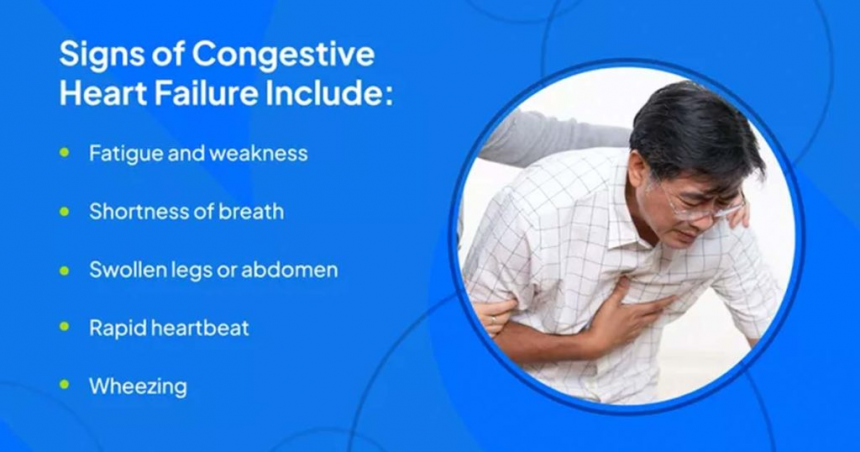Congestive heart failure is a condition where the heart is unable to efficiently pump blood, leading to fluid buildup in the body’s tissues. Recognizing early signs is crucial for timely medical intervention and better outcomes. Here are 13 early warning signs to watch for:
- Shortness of Breath: One of the most common signs, especially during physical activity or when lying down.
- Persistent Cough: Chronic cough producing white or pink mucus may indicate congestive heart failure.
- Swelling in Legs, Ankles, and Feet: Edema in lower extremities is a hallmark of this condition.
- Rapid or Irregular Heartbeat: Increased heart rate or irregular beats can be early signs.
- Fatigue and Weakness: Feeling unusually tired or weak, even after rest.
- Difficulty Sleeping When Lying Flat: Many experience orthopnea, difficulty breathing when lying flat.
- Swelling in the Abdomen: Ascites, swelling in the abdominal area, is common.
- Rapid Weight Gain: Sudden weight increase due to fluid retention may be a warning sign.
- Nausea and Lack of Appetite: Feeling nauseous or loss of appetite can be symptoms.
- Increased Urination at Night: Frequent urination at night (nocturia) due to kidney blood flow.
- Confusion and Impaired Thinking: Reduced blood flow to the brain can lead to confusion and memory loss.
- Bluish-Colored Skin (Cyanosis): Bluish tint to skin, lips, and fingers can indicate low oxygen levels.
- Swelling in Neck Veins: Jugular vein distention is a visible sign of fluid overload in the veins.
If you experience any of these symptoms, especially if they worsen or are accompanied by severe shortness of breath, chest pain, or fainting, seek medical attention immediately. Early diagnosis and treatment can help manage symptoms and improve quality of life.
Early recognition of congestive heart failure symptoms is crucial for effective management. By staying vigilant and seeking prompt medical care, you can better manage your health and potentially slow the progression of heart failure.
Sources: Health, Cleveland Clinic, Mayo Clinic






